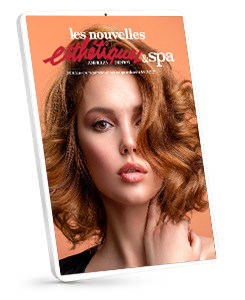
Learning how to deal with an empathetic heart
Do you know what the word “Empathetic” means? According to the Encyclopedia of Social Psychology, “Empathy” is often defined as the understanding of another person’s experience by imagining oneself in another person’s situation. As skin therapists, we encounter so many different energies and emotions. Having empathy is such an incredible gift, especially in the service industry. If you define yourself as an empath, then you know how hard it is to come home after a long day of back to back clients and just needing to be left alone so you can sit in silence and process all of the energy that you absorbed in a day. How do you differentiate all of this energy? Who is it? Is what you’re feeling something that belongs to you or, is it something you picked up during the day? It can be so exhausting sifting through the piles and piles of material.
Being an empath can take a toll on you physically, emotionally, and mentallyanxiety and depression disorders increase. You start to develop potentially addictive habits to numb the pain of everyday life. You love helping people look and feel their absolute best, but you tend to lose sight of your best interests. They don’t teach you this in Aesthetics school. They don’t teach you how to help a mother cope who just lost her child or a young girl who lost her best friend. How to then turn around and put on a happy face because your next client just got engaged or your client after that finally found out she was pregnant after two years of trying. Some cannot imagine how hard it is to switch from one emotion to another in a moment.
[ihc-hide-content ihc_mb_type=”show” ihc_mb_who=”2,4,5,6,7″ ihc_mb_template=”3″ ]
One part of balancing your empathetic personality with your service to the beauty industry is learning how to manage and categorize these emotions. It sounds simple, I know, but it takes a lot of practice.
PRACTICE 1. Breathing
Throughout the day, try some simple breathing techniques. Sit in a comfy chair or position yourself on the floor and relax your body and mind. Take a deep breath in through your nose for five seconds and hold it for seven seconds. Next, exhale even longer for eight seconds and expel the breath out of your belly. Repeat a couple more times until you feel more relaxed. The great thing about breathing techniques is that you can practice just about anywhere.
PRACTICE 2. Meditation
Sitting still and just being with yourself and your breath can be an incredibly effective practice for empaths. Same as the first practice, sit in a comfortable position in a quiet space. Close your eyes, relax your body slowly, breathe in and out, and focus on breathing. When negative thoughts start to creep in, push them away, and bring yourself back to your breath. Meditation takes a lot of practice. It is often best to start off practicing for just a few minutes and work your way up.
PRACTICE 3: Compartmentalization
By definition, it means to divide sections into categories. Compartmentalizing can also be a challenging technique to master. At the end of the day, while all of these energies are still fresh in your mind, it is time to start storing these energies into their respective compartments. Pay special attention to what force is yours and what emotion belongs to someone else. One suggestion is journaling. Sitting down at the end of the day and writing out everything you think might be related to an emotion that attached to you that day. Getting it out of your head and getting it on paper and then throwing it away or burning it (safely) can help clear some headspace. Also, write down good things that happened that day to add some positivity to your journal and your life.
PRACTICE 4: Self-care
Self-care has become a trending term as of late—an inconceivable method for some. More and more people are aware of how important self-care is, especially those that are highly sensitive but don’t have the strength or, some might say, “time” to do it. It is often incredibly difficult for empaths to feel compassion for themselves because they are too worried about everyone else.
One way you can practice self-care is by resting. Our bodies and minds need rest. Don’t worry; your body will let you know when you need it—spending time with family and friends even if you are hanging out watching a movie or playing a game.
Exercise is also an essential part of self-care. It releases the feel-good hormones that we all need. Find a hobby that makes you incredibly happy. Think about something you loved as a kid and recreate that. Read, color, paint, ride a bike, go swimming, go out and play with your kids, take up a craft like knitting or sewing, go shopping, grab coffee with friends, etc. Anything that brings you happiness, go out and DO IT! You work hard! You deserve it and don’t let your brain tell you any different.
PRACTICE 5: Gratitude
Start each day with a grateful heart. Appreciation can increase positive energy. Start your day with little things like buying the person in the car behind you at the drive-thru coffee. Tell a stranger how much you like their handbag. Be pleasant to the bank teller that seems to be having a rough day. Say thank you to the person that helped carry your groceries to your car. There are infinite ways to show gratitude. It is so incredibly simple.
PRACTICE 6: Listen to your intuition.
Don’t ignore it when it is trying to tell you that something isn’t right. Instinct will tell you a lot if you listen to it. It can tell you all you need to know about meeting a person in that first few minutes.
PRACTICE 7: Love yourself
This practice can fall into the self-care category. Be proud of who you are. Be proud of the work that you do. Be proud of your sensitive heart and profoundly caring soul. Not a lot of people were born with the gift of empathy. Use it! But don’t forget to use it on yourself too. If you can’t love yourself, then it is incredibly hard to put love into other people. That is a massive part of this industry, isn’t it? Making people feel loved, cared for, unforgettable, and heard. But you won’t be capable of any of that unless you love yourself first.
Being an Empath is a beautiful gift that you were blessed to receive. Treasure it. Don’t hide from it. Don’t waste it. Accept it! Do good things with it. It can be hard at times, but now you have the tools to help you along your journey of a lifetime, and what a journey it could be. And when in doubt, remember this quote:
“Sensitivity isn’t a weakness. It is Sensitivity that allows us to experience a life of depth. It is Sensitivity that allows us to listen to our deepest needs and dreams. It is Sensitivity that permits us to perceive the intricate beauty and divinity of life.”
[/ihc-hide-content]












